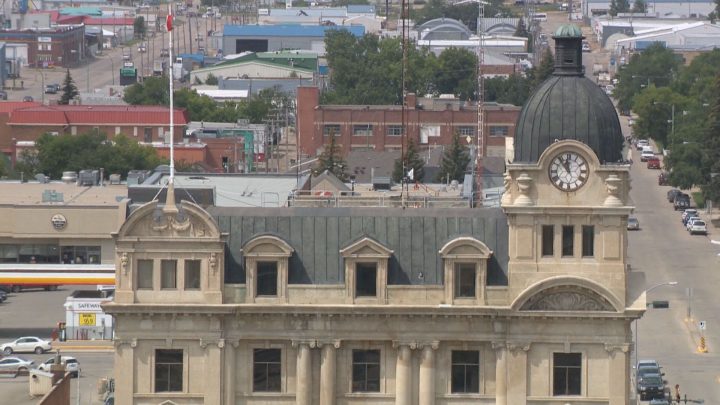Moose Jaw city council will continue with meetings amid the COVID-19 pandemic, but without a public gallery.

The city revealed the format in a news release Tuesday, one day after announcing the closure of its civic facilities.
Moose Jaw will livestream council meetings on the City of Moose Jaw YouTube channel, according to the press release. Municipal politicians meet twice per month on Mondays at 5:30 p.m. As such, the livestream will be up by 5 p.m.
The next meeting is set for March 23.
Committee meetings are cancelled until further notice, according to the press release.
City of Moose Jaw spokesperson Craig Hemingway said he couldn’t speak to council’s decision, but noted there were no confirmed cases of COVID-19 in Moose Jaw as of Tuesday evening. In the province, there are two confirmed cases and six presumptive cases.
Hemingway said Moose Jaw is taking its lead from the federal and provincial governments.
- Canadian man dies during Texas Ironman event. His widow wants answers as to why
- ‘Super lice’ are becoming more resistant to chemical shampoos. What to use instead
- Canadians more likely to eat food past best-before date. What are the risks?
- Treatment from female doctors leads to lower death rates, study finds
The city’s emergency measures staff continue to meet daily, he said.
In addition to closing civic facilities, Moose Jaw will be making some changes to transit. Passengers without mobility aids and who do not require use of a ramp will be required to board and disembark using the rear door. Alternate fare boxes are being implemented.
“These are precautionary measures,” Hemingway said.
“It’s a rapidly changing situation and we want to make sure we’re on top of everything.”
Questions about COVID-19? Here are some things you need to know:
Health officials say the risk is low for Canadians but warn this could change quickly. They caution against all international travel. Returning travellers are asked to self-isolate for 14 days in case they develop symptoms and to prevent spreading the virus to others.
Symptoms can include fever, cough and difficulty breathing — very similar to a cold or flu. Some people can develop a more severe illness. People most at risk of this include older adults and people with severe chronic medical conditions like heart, lung or kidney disease. If you develop symptoms, contact public health authorities.
To prevent the virus from spreading, experts recommend frequent handwashing and coughing into your sleeve. And if you get sick, stay at home.
For full COVID-19 coverage from Global News, click here.










Comments